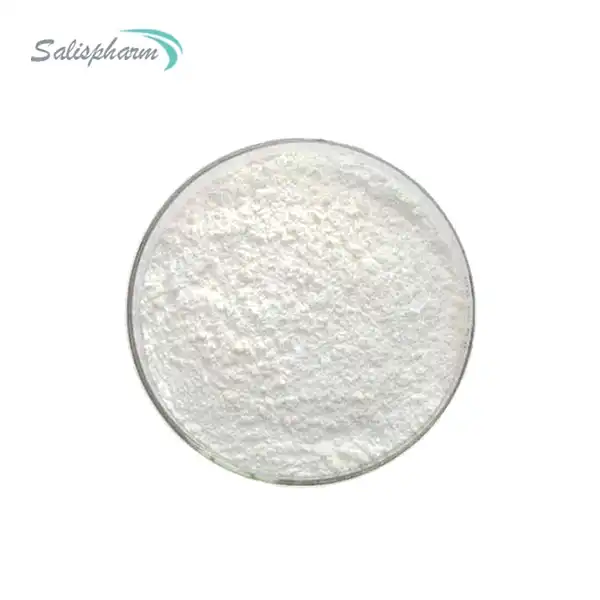Betamethasone is a potent synthetic glucocorticoid medication widely used for its anti-inflammatory and immunosuppressive properties. It is available in various forms, including oral tablets, injections, and topical creams or ointments. While betamethasone has numerous therapeutic applications, it is crucial to understand when it should not be used or when caution is warranted to avoid potential adverse effects and complications.
Is Betamethasone Safe During Pregnancy?
Pregnancy is a delicate period, and the use of medications requires careful consideration to ensure the safety of both the mother and the developing fetus. Betamethasone, like other corticosteroids, can cross the placental barrier and potentially affect the unborn child. The use of betamethasone during pregnancy should be carefully evaluated and discussed with a healthcare professional.
While betamethasone is generally not recommended for routine use during pregnancy, there are specific situations where its benefits may outweigh the potential risks. One such scenario is when betamethasone is administered to pregnant women at risk of preterm delivery to help accelerate fetal lung maturation. In this case, the medication is given in two doses, 24 hours apart, between 24 and 34 weeks of gestation. This treatment can significantly reduce the risk of respiratory distress syndrome and other complications associated with preterm birth.
However, it is essential to note that betamethasone powder should only be used during pregnancy when the potential benefits justify the potential risks to the fetus. Prolonged or repeated use of betamethasone during pregnancy may increase the risk of certain adverse effects, such as intrauterine growth restriction, low birth weight, and potentially adverse effects on fetal brain development. Additionally, betamethasone may increase the risk of gestational diabetes, hypertension, and preeclampsia in pregnant women.
It is crucial for pregnant women to discuss the use of betamethasone or any other medication with their healthcare provider, weighing the potential risks and benefits carefully. Appropriate monitoring and follow-up care are essential if betamethasone is prescribed during pregnancy, including regular prenatal check-ups, fetal growth monitoring, and monitoring for potential side effects.
Can Betamethasone Powder Be Used for Weight Loss?
The use of betamethasone powder or any form of betamethasone for weight loss purposes is not recommended and can be potentially dangerous. Betamethasone is a potent corticosteroid, and its misuse or abuse for non-medical purposes can lead to serious adverse effects.
While corticosteroids like betamethasone can initially cause fluid retention and increased appetite, leading to weight gain, they do not directly promote fat loss. In fact, long-term use of corticosteroids is associated with an increased risk of developing obesity, particularly in the abdominal region, due to their effects on metabolism and fat distribution. Corticosteroids can cause redistribution of body fat, leading to a characteristic "moon face" and "buffalo hump" appearance.
Using betamethasone powder or any other form of betamethasone for weight loss purposes can result in various adverse effects, including:
1. Adrenal suppression: Prolonged use of corticosteroids can suppress the body's natural production of cortisol, leading to adrenal insufficiency and potential life-threatening complications such as adrenal crisis.
2. Metabolic disturbances: Betamethasone can disrupt normal metabolic processes, leading to conditions such as diabetes, high blood pressure, and dyslipidemia (abnormal levels of blood fats).
3. Immunosuppression: Corticosteroids like betamethasone can suppress the immune system, increasing the risk of infections, including opportunistic infections and reactivation of latent infections like tuberculosis.
4. Osteoporosis: Long-term use of corticosteroids can contribute to bone loss and an increased risk of osteoporosis and fractures, especially in postmenopausal women and older individuals.
5. Psychological effects: Betamethasone and other corticosteroids can cause mood changes, anxiety, depression, and even psychosis in some cases.
6. Other side effects: Corticosteroids can also cause skin changes, delayed wound healing, muscle weakness, glaucoma, and gastrointestinal problems like ulcers or bleeding.
Instead of using betamethasone powder or other corticosteroids for weight loss, it is essential to focus on adopting a healthy lifestyle that includes a balanced diet and regular physical activity. If weight loss is a concern, it is recommended to consult with a healthcare professional or a registered dietitian for safe and effective weight management strategies, such as calorie-controlled diets, exercise programs, and behavioral modifications.
What Are the Side Effects of Betamethasone Injections?
Betamethasone injections, like other corticosteroid injections, are commonly used to treat various inflammatory conditions, such as arthritis, tendinitis, and bursitis. While these injections can provide effective relief from pain and inflammation, they are not without potential side effects. It is crucial to be aware of these side effects and to discuss them with a healthcare professional before receiving betamethasone injections.
Potential side effects of betamethasone injections can be divided into local and systemic effects:
- Local Side Effects:
1. Pain and discomfort at the injection site
2. Skin discoloration or depigmentation
3. Tissue atrophy (thinning of the skin or fat layer)
4. Tendon weakening or rupture
5. Infection at the injection site (rare)
6. Nerve damage (rare)
7. Joint damage or cartilage degeneration with repeated injections
- Systemic Side Effects:
1. Elevated blood sugar levels (hyperglycemia), which can be problematic for individuals with diabetes
2. Fluid retention and weight gain
3. Increased appetite
4. Mood changes, such as irritability, anxiety, or depression
5. Insomnia or sleep disturbances
6. Suppression of the adrenal glands (adrenal insufficiency), leading to fatigue, muscle weakness, and other symptoms
7. Osteoporosis (bone loss) with long-term use, increasing the risk of fractures
8. Increased risk of infections due to immunosuppression
9. Gastrointestinal problems, such as stomach ulcers, bleeding, or perforation
10. Cataracts or glaucoma (rare)
11. Cushing's syndrome (a condition caused by excessive corticosteroid levels) with prolonged or high-dose use
12. Hypertension (high blood pressure)
13. Electrolyte imbalances, such as low potassium levels (hypokalemia)
The risk of side effects associated with betamethasone injections may increase with higher doses, frequent injections, or prolonged use. It is essential to follow the prescribed dosage and frequency recommended by the healthcare professional and to report any side effects promptly.
Additionally, certain individuals may be at higher risk for side effects, such as those with pre-existing conditions like diabetes, osteoporosis, immunocompromised states, or a history of gastrointestinal ulcers or bleeding. Healthcare professionals may recommend additional monitoring or precautions for these individuals, such as adjusting medication doses or providing additional treatments to manage side effects.
To minimize the risk of side effects, betamethasone injections should be administered by a trained healthcare professional in a sterile environment, and the injection site should be monitored for any signs of infection or other complications. Proper injection technique and site selection are essential to reduce the risk of local side effects.
In some cases, healthcare professionals may prescribe additional medications or supplements, such as calcium and vitamin D supplements, to help mitigate the potential side effects of betamethasone injections, particularly on bone health.
It is important to note that while betamethasone injections can provide significant relief from inflammatory conditions, they should be used judiciously and under the guidance of a healthcare professional, as the potential side effects can be serious and may outweigh the benefits in certain cases.
If you are also interested in this product and want to know more product details, or want to know about other related products, please feel free to contact iceyqiang@gmail.com.
References:
1. Betamethasone Monograph - Drugs.com
2. Betamethasone: Uses, Side Effects & Dosage - Drugs.com
3. Betamethasone: An Overview - Cleveland Clinic
4. Betamethasone Use During Pregnancy - CDC.gov
5. Corticosteroid Injections - OrthoInfo.org (AAOS)
6. Betamethasone Injections: Benefits and Side Effects - WebMD
7. Betamethasone Dipropionate: A Review of its Clinical Efficacy and Safety in Dermatologic Treatment - Journal of Drugs in Dermatology
8. Corticosteroid Use and Osteoporosis - National Osteoporosis Foundation
9. Adrenal Insufficiency and Corticosteroid Use - Endocrine Society
10. Weight Gain with Corticosteroid Use - Endocrine Web







